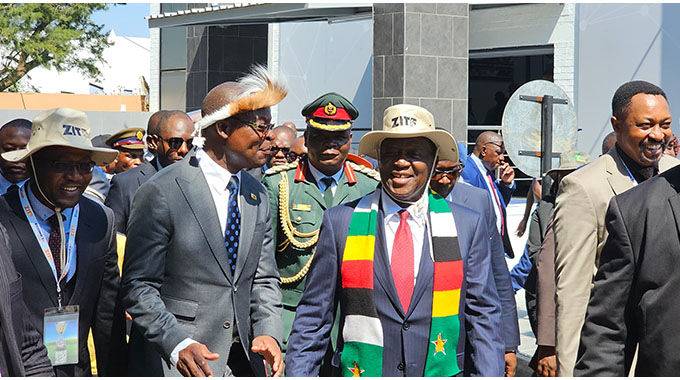Russia signs agreement with African countries to train mining engineers

Sifelani Tsiko in St Petersburg Russia
RUSSIA has signed a cooperative agreement with nearly 30 African universities to enhance the training of mining engineers on the continent.
Zimbabwean universities are also set to benefit as there are part of the Subsoil Africa Consortium Universities under which the agreement was signed.
The signing of the agreements of commitment for the relevant support and implementation of this initiative follows up on the 2nd Russia – Africa Summit.
At the summit African and Russian leaders agreed to explore a number of mutually beneficial opportunities in various areas that cover energy generation, agriculture, engineering and education.
Russian experts and 54 African heads of universities are meeting here to explore ways to enhance the training of mining engineers.
The week-long event themed: “lnternational Congress: Africa Seeks Solutions,” has attracted 150 participants from 45 African countries.
This event was organised by the lnternational Competence Centre for Mining Engineering Education under the auspices of Unesco in partnership with the Subsoil Africa Consortium of Universities and the Catherine ll St Petersburg Mining University.
Subsoil Africa Consortium of Universities president Prof Paul Omojo Omaji said capacity building was an important tool to fight poverty in Africa.
“The magnanimity of Russians in opening their doors for us, is something we will remember for a long time,” he said.
“The persisting paradox of poverty in the midst plenty, is what is driving us to seek solutions to our problems. Capacity building of our young mining engineers will be a game changer foe the continent.
“We want to see an Africa that will move from being a poverty capital of the world to being a prosperity capital of the world.”
Prof Omaji hailed Russia’s unconditional support to train young African engineers.
“Russia continues to build its legacy, a legacy of helping people in need. Its a partner that understands our challenges and Africa’s predicament,” he said.
Vladimir Litvinenko, rector of the Catherine ll St Petersburg Mining University said geopolitical developments in recent times has impacted on Africa and Russia.
“Today’s environment is impacted by geopolitical events. We are all impacted,” he said. “We have to be correct in assessing our worldview. Lack of qualified labour is a problem for Africa particularly engineers.
“Training is really important because it educates future experts. Russia stands ready to work with you to develop the capacity of Africa’s young engineers.”
Litvinenko hailed Zimbabwean Cabinet Minister Prof Amon Murwira for being the brains behind the creation of the consortium at the 2nd Russia Africa Summit.
He said Prof Murwira was a driving force in pushing the establishment of the Consortium which sought to enhance the capacity of young African mining engineers.
Namibia’s minister of higher education technology and innovation Dr ltah Kandjii-Murangi urged African universities to work closely with the Russian university to develop skills for mining engineers from Africa.
“Our universities need to seize this opportunity under the Consortium to work closely with our Russian counterparts to train our own mining engineers,” she said.
“The consortium mus be operationalised by our universities in Africa. Let us ensure all our hands are on the deck, particularly in the area of training mining engineers.
“Lets us see more action and less talk.”
A 12-member delegation of Zimbabwean experts drawn from universities, research institutions and Government were attending the congress.
This congress was part of efforts to fulfil the implementation of some of the major agreements that were made at the Russia – Africa Summit in July this year.
Mining remains the bulkwark of the African economy contributing substantially to revenue and GDP.
The continent still grapples with a shortage of specialists capable of mining and processing minerals.
Africa has lost billions in potential revenue due to lack of mining engineers and equipment to process and add value on the continent.
The training of engineers will spur Africa’s economic development.
Zimbabwe and Russia have signed several cooperation agreements under the Zimbabwe – Russia Intergovernmental Commission on Economic, Technical and Scientific Cooperation.
President Mnangagwa attended the 2nd Russia – Africa Summit in July this year where he urged Russian companies to take advantage of the numerous opportunities that exist in the agro-industrial sector, lithium mining, energy and infrastructure development.
More than 1200 Zimbabwean students are studying in Russian universities.
Russia has over the past six decades trained more than 310 000 African students in various fields.










Comments